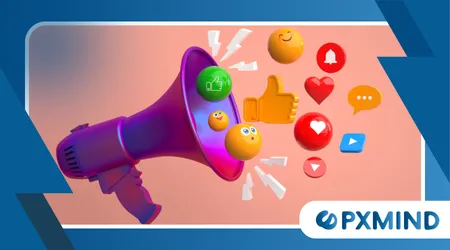I social media influenzano il tuo umore? Ecco cosa fare

La domanda che molti si pongono in quest'era iperconnessa è: I social media influenzano il tuo umore?Per un numero crescente di persone la risposta è un sonoro "sì".
Annunci
La nostra vita quotidiana è intrecciata con le piattaforme digitali, che fungono sia da finestra sul mondo sia da specchio che riflette – spesso in modo distorto – le nostre vite. Dobbiamo guardare con onestà a questa relazione.
Perché il tuo umore crolla dopo aver scrollato?
Le piattaforme dei social media sono progettate per creare dipendenza, massimizzando il coinvolgimento attraverso stimoli psicologici. L'effetto "highlight reel" è uno dei principali responsabili.
Le persone ostentano una perfezione ricercata, dando origine a una forma insidiosa di confronto sociale.
Questa continua esposizione alle esistenze apparentemente impeccabili degli altri crea un "divario". Percepiamo una disparità tra la nostra realtà e lo standard patinato della rete.
Questa sensazione, la "paura di perdersi qualcosa" (FOMO), genera una notevole ansia.
Un altro fattore è l'enorme quantità di informazioni. Notifiche e feed di notizie costanti mettono il nostro sistema nervoso in un perenne stato di allerta di basso livello.
Questo sovraccarico digitale è emotivamente estenuante.
È fondamentale riconoscere il sottile passaggio dalla connessione al consumo.
Lo scorrimento passivo, in cui si assimilano contenuti senza interagire, è particolarmente associato a sintomi depressivi. Alimenta una sensazione di isolamento e disconnessione.
In che modo l'uso passivo e quello attivo influiscono sul benessere?
Il modo in cui interagisci è più indicativo del tempo che trascorri online.
L'uso attivo implica un'interazione diretta, come inviare un messaggio a un amico o commentare in modo significativo. Offre un senso di autonomia e di connessione autentica.
L'uso passivo, al contrario, è simile alla visione di un film sulla vita di altre persone.
È qui che si innesca la trappola del paragone. Sei solo uno spettatore di una performance modificata, il che porta a un senso di inadeguatezza.
Per saperne di più: Come supportare un amico che soffre di ansia
Un approccio attivo utilizza i social media come un vero e proprio strumento di comunicazione.
Un approccio passivo spesso si trasforma in autocritica e invidia. La chiave è passare consapevolmente da una visione passiva a un'interazione mirata.

Quali sono i principali meccanismi psicologici in gioco?
La progettazione delle piattaforme sfrutta diversi meccanismi psicologici radicati.
Il sistema di ricompense variabile, simile a quello di una slot machine, ci spinge a tornare per il prossimo "mi piace" o commento. Questo ciclo guidato dalla dopamina può bypassare i nostri processi di pensiero razionale.
Inoltre, queste piattaforme possono ridurre le competenze sociali faccia a faccia.
Le interazioni online mancano delle sfumature dei segnali non verbali. Perdiamo la capacità di gestire le emozioni e di provare empatia nel mondo reale.
++ Il legame tra nutrizione e salute mentale
L'anonimato garantito dallo spazio digitale facilita anche comportamenti tossici, come il cyberbullismo.
L'esposizione a negatività, conflitti e dibattiti ostili influisce direttamente sullo stato emotivo. È un ambiente spesso poco sicuro dal punto di vista psicologico.
Notiamo uno schema chiaro: più lungo è l'impegno passivo, più alto è il calo dell'umore.
La convalida artificiale ricercata attraverso i "Mi piace" non soddisfa mai veramente il bisogno di una connessione profonda e autentica.
Come puoi riformulare le tue abitudini digitali per ottenere un impatto positivo?
Per riprendere il controllo è necessario iniziare con una consapevolezza consapevole dei propri modelli di utilizzo.
Il primo passo è riconoscere il problema. Chiediti: scorrere le pagine arricchisce o prosciuga le mie riserve emotive?
Implementa i "confini digitali" creando zone libere dal telefono nella tua casa, soprattutto nelle camere da letto.
Questo semplice cambiamento migliora notevolmente la qualità del sonno, che è intrinsecamente legata alla stabilità dell'umore. Il telefono non dovrebbe essere la prima cosa che vedi al mattino o l'ultima la sera.
Guarda quanto è interessante: Cosa rende una persona simpatica?
Valuta la possibilità di smettere di seguire gli account che suscitano paragoni o negatività.
Crea un feed che ti ispiri, ti educhi o ti intrattenga davvero. Tratta il tuo spazio digitale come la tua casa fisica; mantienilo pulito.
Una tecnica efficace è la "regola dei 20 minuti". Quando senti il bisogno di scorrere, dedicati consapevolmente a un'attività diversa che ti migliori l'umore per venti minuti.
Potrebbe trattarsi di leggere, fare esercizio fisico o parlare con qualcuno di persona.
Invece di guardare all'infinito influencer di viaggio, usa quei venti minuti per pianificare un'escursione nel fine settimana o chiamare un amico. Questo sostituisce l'invidia passiva con un beneficio attivo e tangibile.
Quando un post politico suscita rabbia, anziché lanciarti in una discussione ostile, scrivi un paragrafo riflessivo in un diario privato.
Ciò trasforma le emozioni volatili in riflessioni private, migliorando l'autoregolamentazione.
Cosa dicono i dati sull'influenza dei social media? I social media influenzano il tuo umore?
Uno studio del 2024 pubblicato in Economia sanitaria sugli studenti universitari è stata notata una correlazione significativa: gli studenti che hanno aumentato l'utilizzo dei social media anche solo di un'ora durante un periodo di isolamento sociale avevano molte più probabilità di segnalare sintomi di depressione e ansia.
Ciò evidenzia come contesto E modello di utilizzo, non solo la durata, sono essenziali.

La tabella seguente riassume i diversi impatti dell'uso:
| Tipo di utilizzo dei social media | Risultato psicologico associato |
| Consumo passivo (Scorrimento infinito) | Aumento dell'ansia, FOMO (Fear of Mood), confronto sociale negativo, riduzione dell'autostima. |
| Interazione attiva (Messaggistica diretta, collaborazione di gruppo) | Maggiore senso di connessione, sostegno sociale, creazione di comunità. |
| Uso prima di dormire (Scorrendo prima di andare a letto) | Disturbi del sonno, aumento degli ormoni dello stress. |
È chiaro che gli esiti negativi sono spesso legati alle forme di coinvolgimento meno intenzionali.
Possiamo applicare un quadro analogo alla vita digitale?
Pensa al tuo stato emotivo come a un giardino ben curato.
Ogni minuto dedicato a un'attività che valorizza la vita, come leggere un libro, dedicarsi a un hobby o trascorrere del tempo con una persona cara, è come aggiungere terreno fertile e acqua.
Ogni minuto trascorso in confronti tossici o in uno scorrimento passivo è come piantare erbacce.
Col tempo, le erbacce dell'ansia e dell'inadeguatezza possono soffocare le piante sane. Dobbiamo scegliere consapevolmente cosa piantare.
Riprendendo la tua attenzione, i social media stanno influenzando il tuo umore?
La consapevolezza più profonda è che il successo di una piattaforma spesso dipende dalla tua capacità di distrarti. Riconquistando la concentrazione, ritrovi il tuo benessere mentale.
Quanta della tua preziosa attenzione sei disposto a cedere a un algoritmo progettato esclusivamente per il profitto?
Riconoscere che la nostra salute mentale è la vera valuta ci permette di stabilire limiti netti. In definitiva, il potere di cambiare questa dinamica spetta a chi la usa.
Domande frequenti
Come posso sapere se il mio utilizzo dei social media è dannoso?
Se ti senti ansioso, depresso o irritabile dopo aver scrollato, o se dai regolarmente priorità al controllo dei social media rispetto alle responsabilità della vita reale e al sonno, è probabile che il tuo utilizzo sia dannoso per la tua salute mentale.
Cos'è il "doomscrolling"?
Il doomscrolling è l'atto di consumare eccessivamente notizie negative e contenuti sconvolgenti, il che può portare ad un aumento dell'ansia e a un senso di disperazione.
Si tratta di una forma di utilizzo passivo che dovrebbe essere consapevolmente limitata.
Con quale frequenza dovrei prendermi una pausa digitale?
Una buona pratica è quella di prendersi un "sabato digitale" settimanale, ovvero 24 ore completamente libere dagli schermi, oppure di prendersi delle pause giornaliere più brevi, come la "regola dei 20 minuti", durante le quali ci si prende intenzionalmente una pausa per brevi periodi di ristoro.
